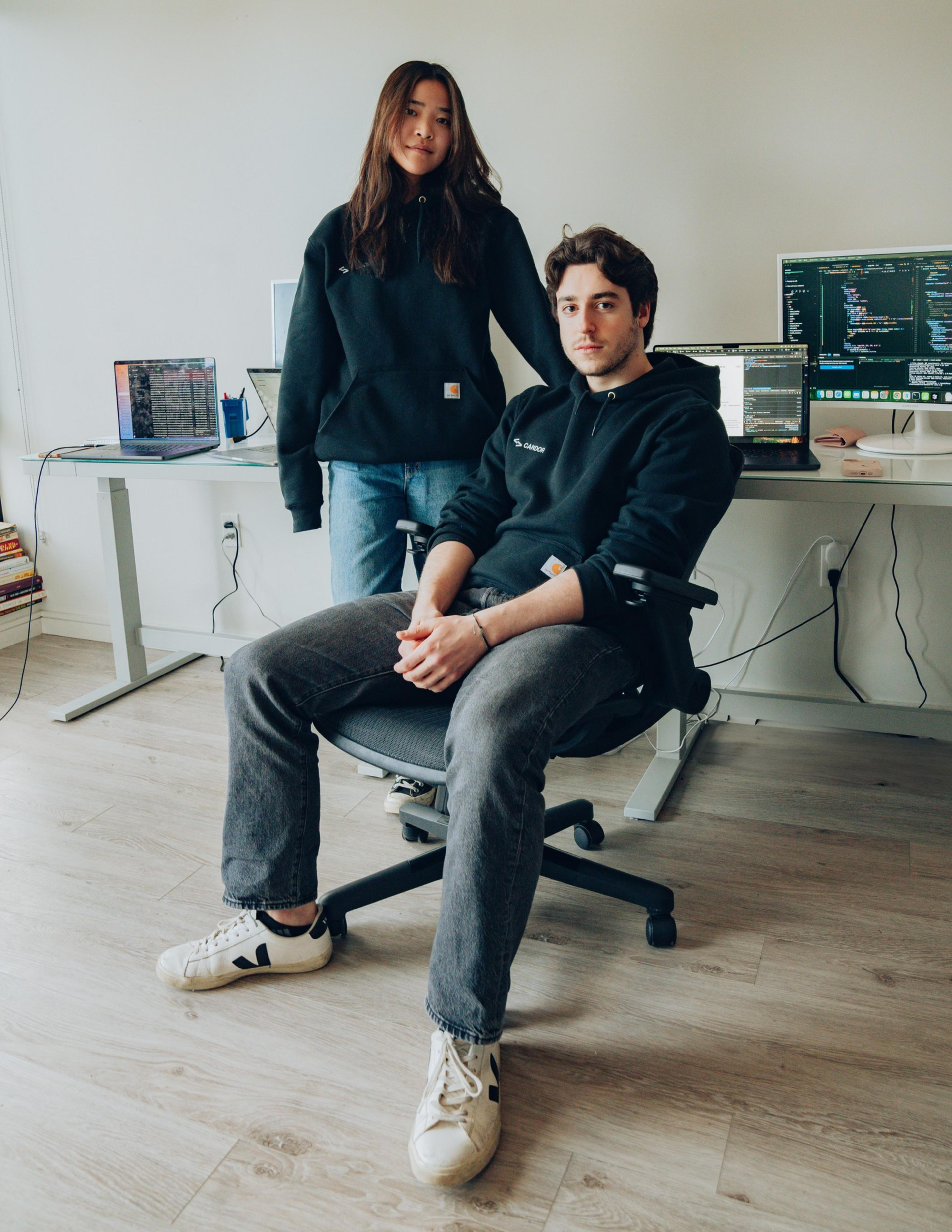At a Y Combinator happy hour event last month, organizers brought in a buffet of Mediterranean food and cans of sparkling water — but there was no alcohol to be found.
“Fun fact: The average founder in Y Combinator is now so young that we couldn’t serve alcohol,” one of the hosts wrote on LinkedIn (opens in new tab) after the event, which might not technically rate as a happy hour.
At the events that do serve booze, “a scary amount” of founders have stickers on their badges indicating they’re not old enough to drink, according to current YC batch member Tycho Svoboda.
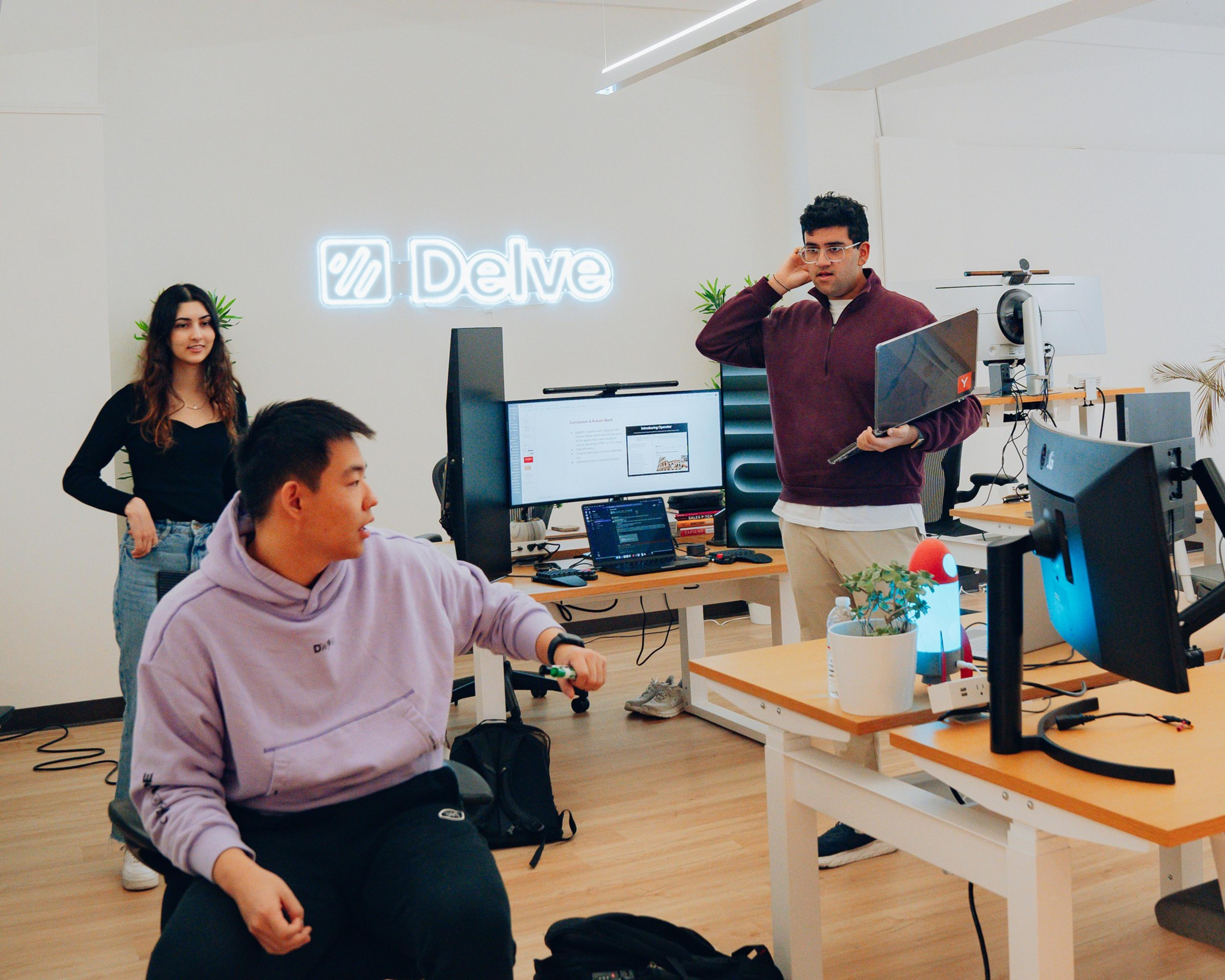
“If you caught me six months ago, I would have had one of those stickers too,” said Svoboda, who dropped out of Stanford last year, with two credits outstanding, to start the machine learning company TensorPool. He says at least a dozen of his Stanford classmates have dropped out to build AI companies.
“This is such a freakishly fast-paced world,” Svoboda said. “I don’t have a wife, I don’t have a kid, I can focus every single ounce of my life into this.”
An ambitious, overly precocious engineer leaving campus to chase the next big thing is not a new phenomenon. Mark Zuckerberg’s rise from awkward Harvard University student to the world’s youngest billionaire was charted in the Oscar-winning film “The Social Network.”
But what was a trickle of oddball dropouts has become an established pipeline. Founders moving to San Francisco are younger and coming from farther and in larger numbers than ever before. Investors say the number of pitches they’re receiving from founders who have foregone traditional education has spiked, and incubators across Silicon Valley are welcoming younger and younger cohorts.
From the apartment complexes of the Dogpatch to the hacker houses of Cerebral Valley, San Francisco is full of founders who dropped out of college or even high school to grind their way into creating the next Facebook of AI.
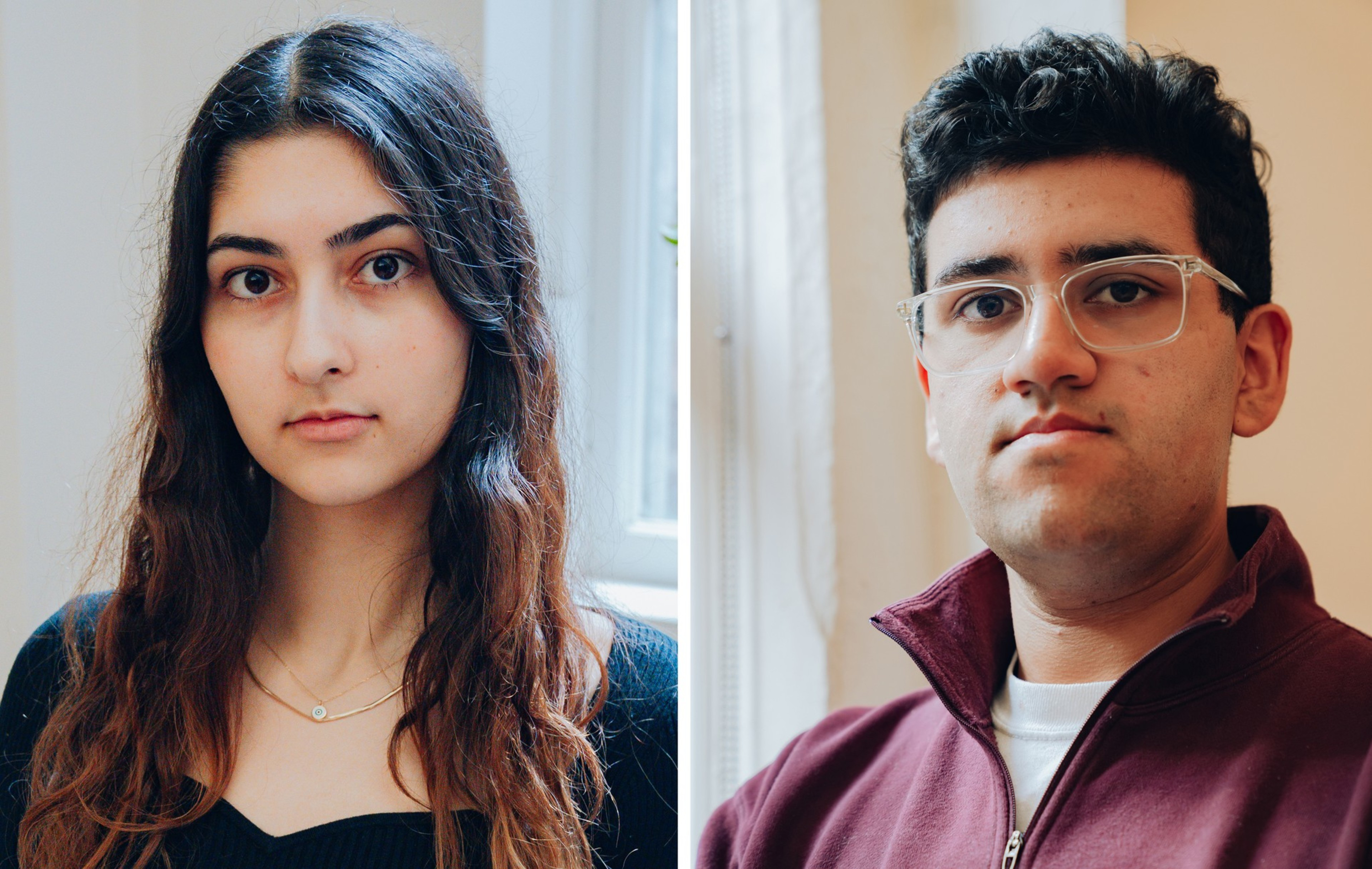
The breakneck speed of AI breakthroughs, along with the relatively low barrier of entry because of AI’s easy accessibility, has produced Goldilocks conditions. Add to that the sheer volume of capital investors have been collecting to deploy into the space and you have a once-in-a-lifetime recipe for “AI-native” kids to shoulder their way to the center of the action.
“This is almost like the internet boom. It’s a now-or-never opportunity, and we wouldn’t sacrifice that for anything,” said Selin Kocalar, the 21-year-old cofounder of AI compliance company Delve.
Kocalar compared dropping out of school to “jumping off a ladder,” especially since both she and cofounder Karun Kaushik have immigrant parents who hammered into them the importance of finishing college.
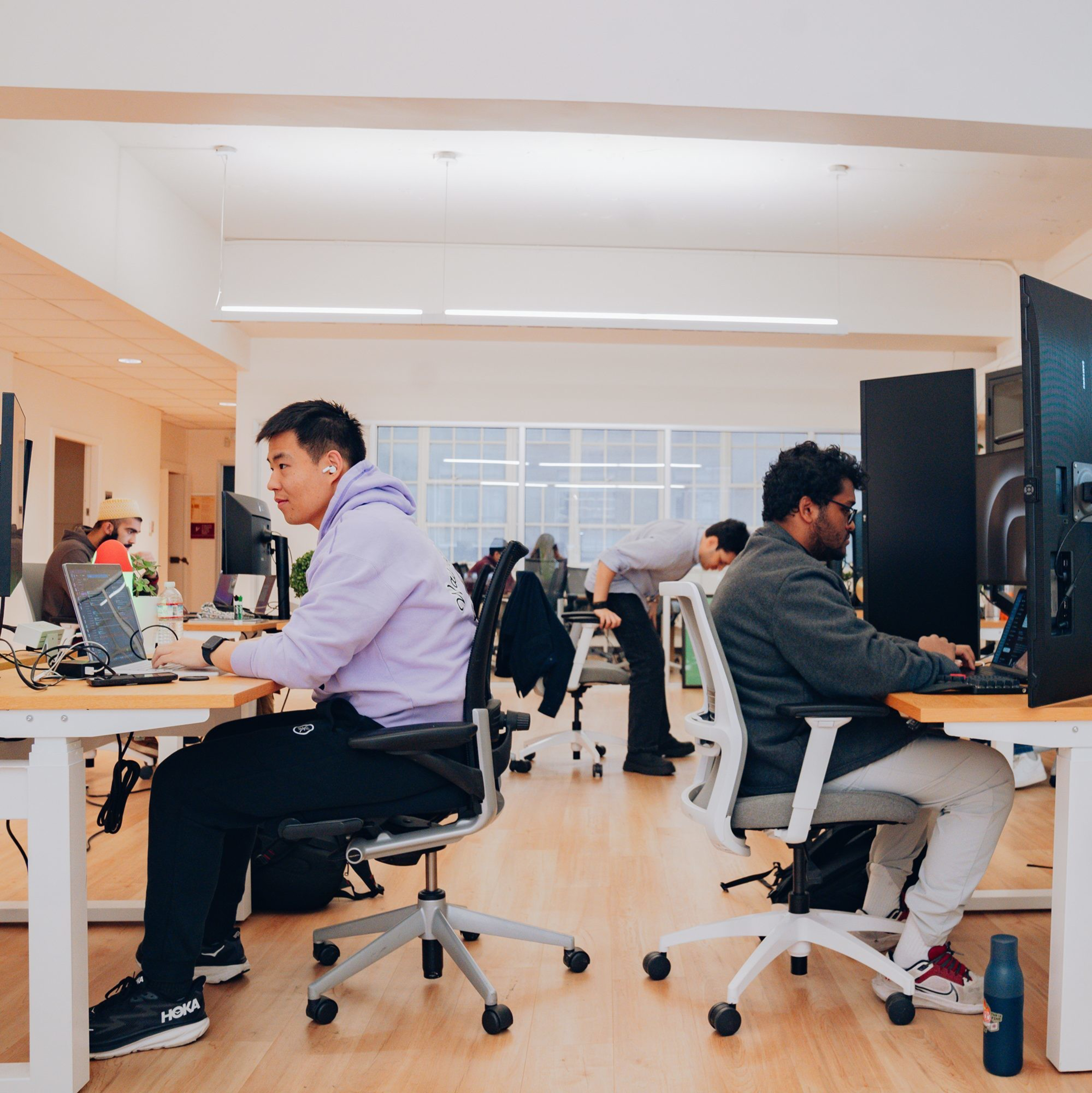
But the two essentially exchanged one kind of college experience for another. Upon moving to San Francisco to participate in last year’s YC winter cohort, they discovered that the Dogpatch was essentially a quasi-college campus for founders (opens in new tab), with dorm-style buildings, state-of-the-art facilities, a cafeteria, and a weekly curriculum with classmates going through the same experience.
Kocalar immediately felt at ease. “It’s normal in this city to be a dropout,” she said. “There are so many people undertaking similar adventures.” Among them is her fellow MIT dropout Alexandr Wang, who became the world’s youngest self-made billionaire (opens in new tab) at 24 after attending YC and founding Scale AI.
AI as a superpower
Since dropping out of MIT during their sophomore year in 2023, Kocalar and Kaushik have built a company that’s a testament to how small teams can leverage AI to do more with less.
With just eight people working out of an office in the Financial District, Delve uses AI agents to collect and verify companies’ compliance with data and security standards. Just over a year later, it has more than a hundred customers and a run rate of several million dollars.
“AI is serving as a superpower,” Kocalar said. “It’s giving us newer players the chance to out-compete the incumbents without massive engineering resources or capital.” The company has raised $3.3 million from investors (opens in new tab) including YC and General Catalyst.
Cory Levy, who runs an educational program for founders called Z Fellows (opens in new tab), said he’s seeing more high school and college dropouts, a trend that began shortly after OpenAI publicly released ChatGPT and has accelerated in line with the AI boom.
Levy said builders who came of age during previous tech eras, like the dot-com or mobile waves, can be “stuck in the old ways.” Meanwhile, “young people are and will be AI-native” and are learning to build tools in minutes or hours that used to take engineering teams weeks or months.
Not every young founder is leaving college, of course. Some aren’t even finishing high school. One recent participant in Z Fellows is 16-year-old John Kessler, a founder of AI polling startup Aaru (opens in new tab).
Toby Brown, a 16-year-old high schooler from London (opens in new tab), is spending a few months in San Francisco building an AI operating system at South Park Commons’ startup accelerator. He plans to live with family friends in Russian Hill and get to know the city by bicycle — no driver’s license necessary.

Levy said the dropouts arriving in San Francisco come from beyond the usual suspect schools, Stanford and MIT. YC founders have noticed this too.
“There was a lot more representation in YC from Georgia Tech than I thought. We’re up there probably in the top three, top five schools being represented,” said Yash Dulla, a dropout from the school and founder of AI sales operation platform Ergo. Dulla added that graduates and dropouts from the University of Waterloo in Canada also make up a surprisingly large number of founders in his cohort.
YC declined to share cohort demographic data.
Dropouts and DOGE
When Ethne Laude was accepted into Stanford in 2021, she worried she might not fit in with the school’s culture.
“I was like, the startup scene seems a bit much. I don’t know if that’s for me,” said Laude, who grew up in New Jersey and was a competitive figure skater in her youth.
But upon settling in Palo Alto, Laude found she was interested in two things: computer science and international relations.
After taking a popular class at Stanford taught by Steve Blank called Technology, Innovation, and Great Power Competition (opens in new tab), where she got to hear from senior government officials and learn about how technology can make government more efficient, she and a friend, Marcus Zimmerman, were inspired to build something together.
Laude said the two pondered the question: How can the U.S. be better positioned in the great power competition against China?
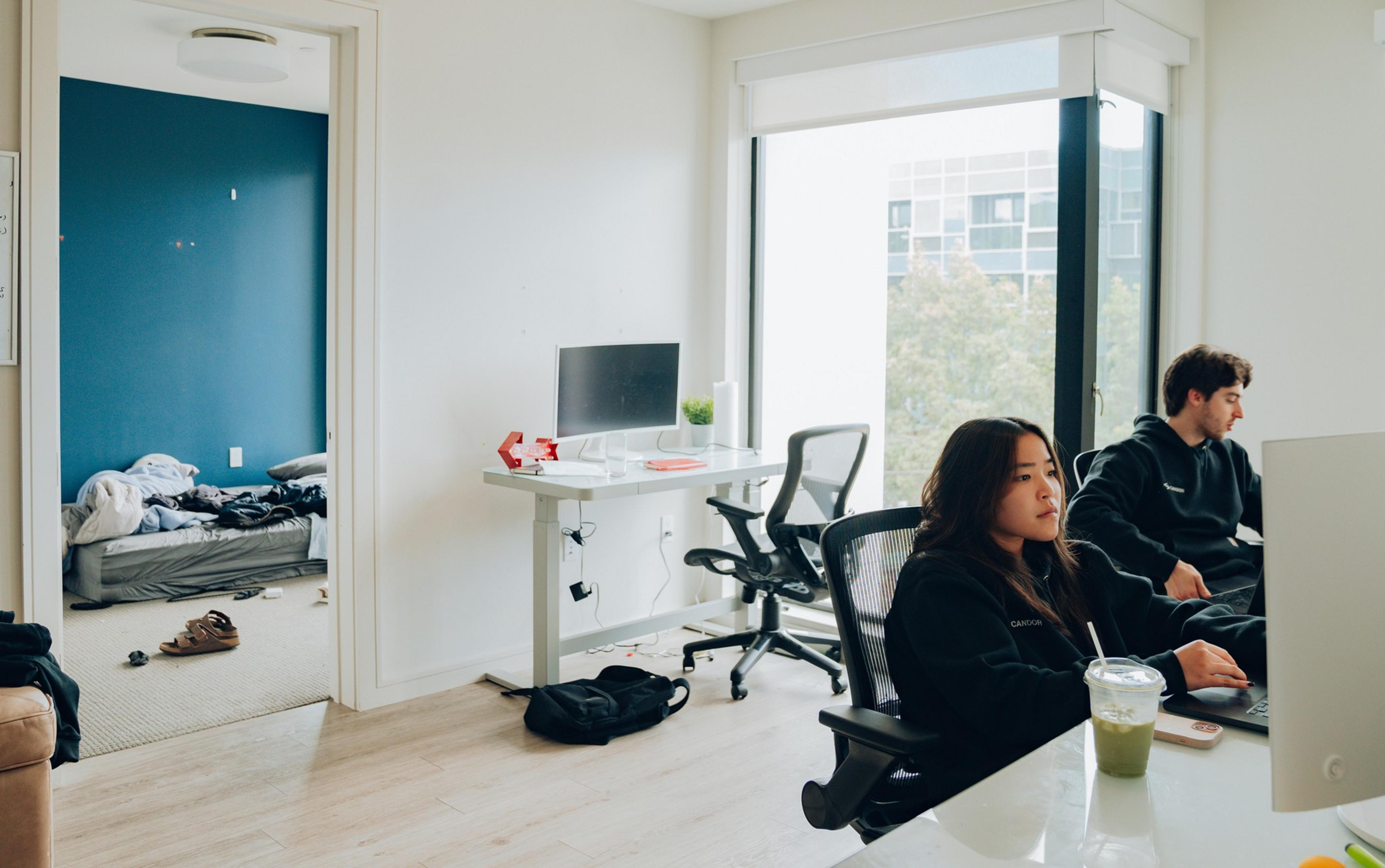
They began working on a project to build AI that helps startups win funding from the federal government, and dropped out of Stanford when they got into YC. They’re building their company, Candor, in a Dogpatch apartment with two standing desks and two mattresses laid on the carpet.
Working on their startup as the Trump administration folds entire government agencies and slashes funding is stressful, but the two are trying to capitalize on the circumstances.
Laude said one of their goals is to work with the Department of Government Efficiency, and they’ve been trying to get in touch with the organization through Stanford connections who are working with Elon Musk.
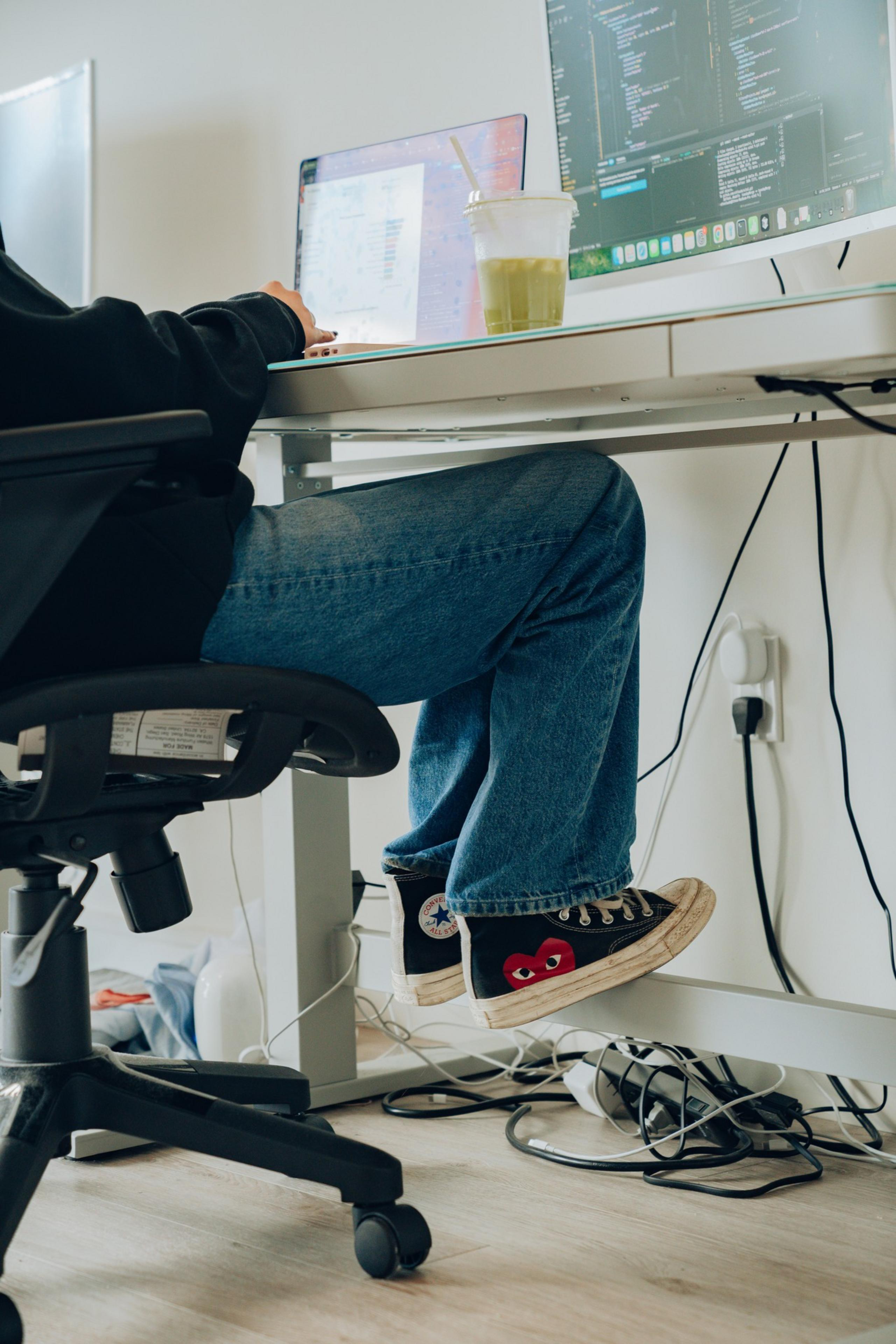

“I think there’s a lot that AI can do in tandem with the longer-term vision of DOGE,” Laude said.
She isn’t thinking about returning to school anytime soon. YC’s impressive Rolodex of speakers, who have included the founders of Instagram and Airbnb, have pulled her even deeper into the world of Silicon Valley.
“I’m like, ‘Holy shit, I’m one step removed from the founders of Twitter,’” Laude said. “Who knows where the future will take us?”
